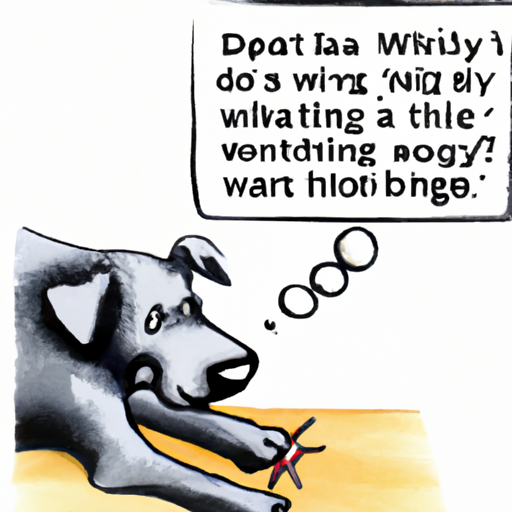Understanding the Behavior
As a caregiver, you’ve probably noticed your furry friend engaged in some peculiar activities. One such activity could be your dog biting their nails. This behavior, while seemingly strange, is not uncommon among canines.
Your dog biting their nails could be a self-grooming habit, similar to how humans might bite their nails. They could be trying to keep their nails short or clean off any dirt trapped underneath. However, it could also be indicative of a more serious issue, such as anxiety or a health condition.
Nail Biting as a Sign of Anxiety
Just as in humans, nail biting in dogs can be a sign of anxiety or stress. Dogs, like us, have a wide range of emotions and can display them in a variety of ways.
- Separation Anxiety: Dogs with separation anxiety might bite their nails when left alone.
- Phobias: Dogs with specific phobias (like loud noises or thunderstorms) might bite their nails out of fear.
- General Anxiety: Some dogs might just be generally anxious and use nail biting as a form of self-soothing.
Health Conditions that Cause Nail Biting
Your dog might also bite their nails due to certain health conditions. Here are a few that could cause this behavior:
- Allergies: Allergies can make your dog’s paws itchy, leading them to bite their nails in an attempt to relieve the itch.
- Parasites: Parasites like mites or ticks can burrow into your dog’s skin, causing discomfort that might lead to nail biting.
| Health Condition | Symptoms | Treatment |
|---|---|---|
| Allergies | Itchy skin, redness, swelling | Antihistamines, topical creams |
| Parasites | Itchy skin, visible parasites | Topical treatments, oral medications |
How to Address Nail Biting in Dogs
If nail biting has become a chronic issue for your dog, it’s crucial to address it properly.
- Consult a Vet: Always consult your vet if you notice any abnormal behavior in your dog. They can help determine if there’s a health issue causing the nail biting.
- Provide Distractions: Try to distract your dog when they start biting their nails. Toys, treats, or a simple game of fetch can do the trick.
- Implement Anxiety-Reducing Strategies: If anxiety is the cause, work on strategies to reduce it. This could include behavioral training, calming music, or anxiety wraps.
Frequently Asked Questions
Q: Can nail biting harm my dog?
A: If done excessively, yes. It can lead to painful infections or injuries.
Q: Is there a specific breed that’s more prone to nail biting?
A: No, any breed can develop this habit.
Q: Should I use a cone to stop my dog from nail biting?
A: A cone can be a temporary solution, but it’s crucial to address the root cause.
Q: Do I need to take my dog to the vet for nail biting?
A: If the behavior is consistent and causing distress or injury, it’s best to consult a vet.
Remember, as a caregiver, understanding and addressing your dog’s behaviors is an integral part of their overall well-being.



